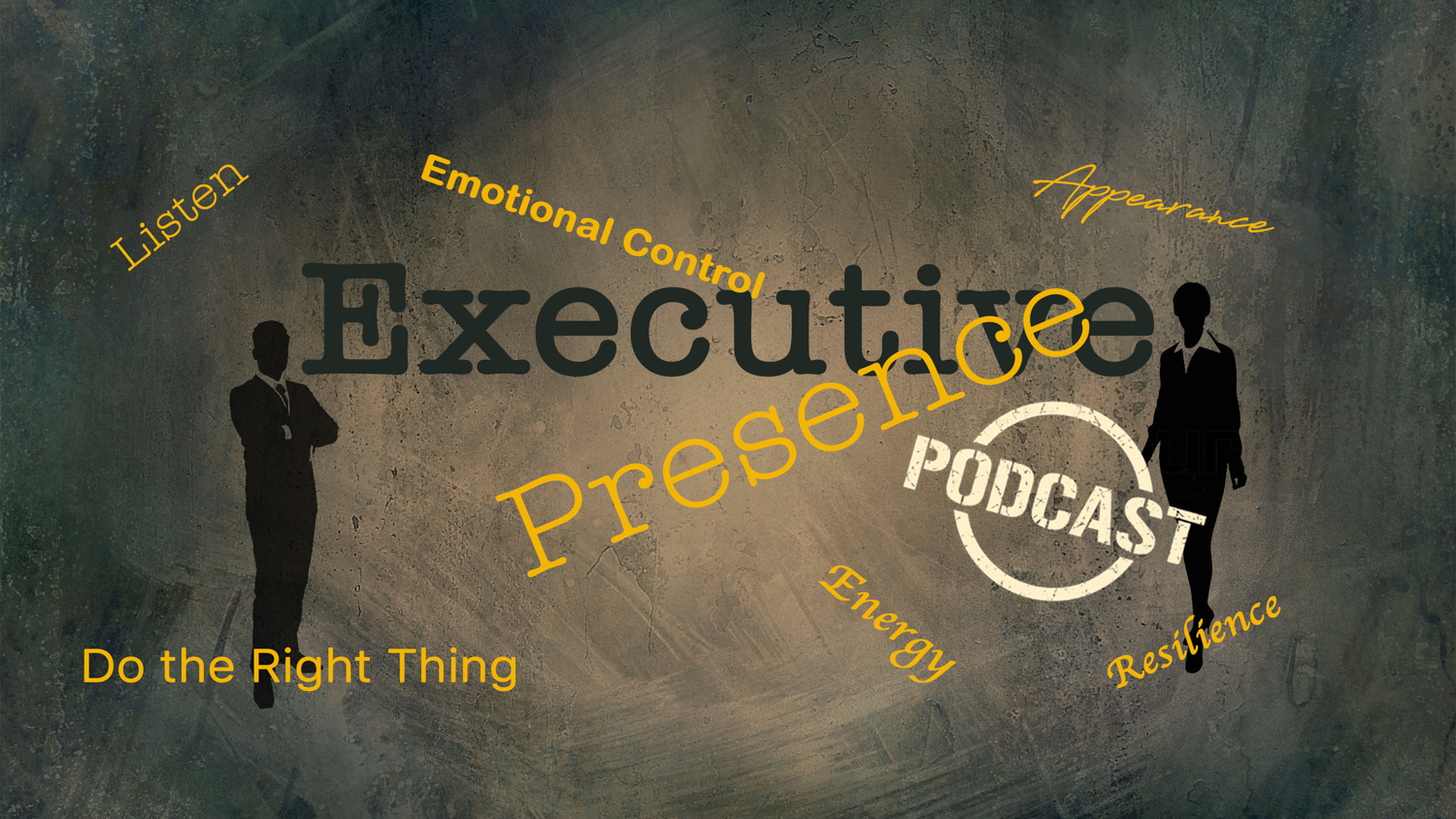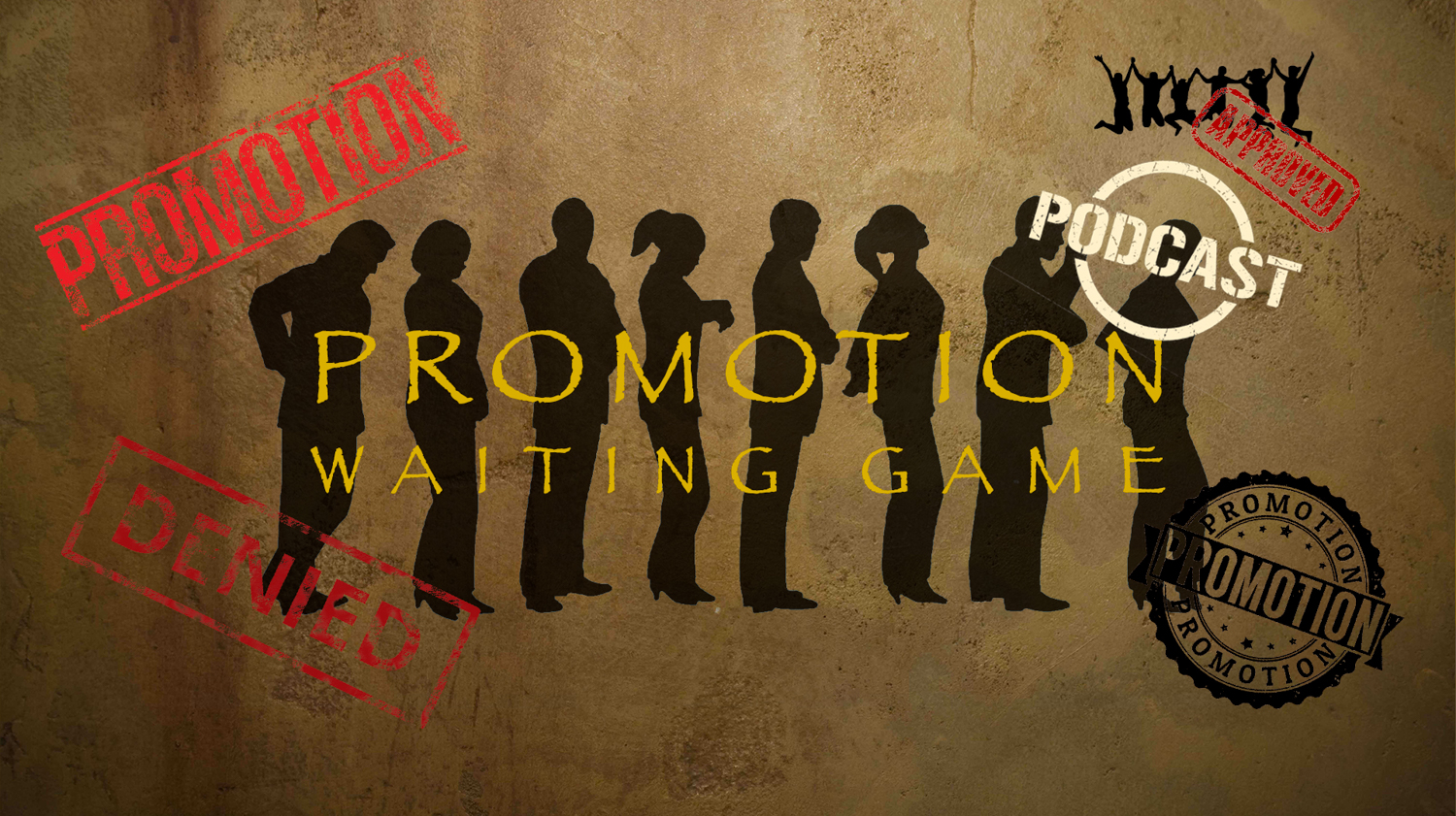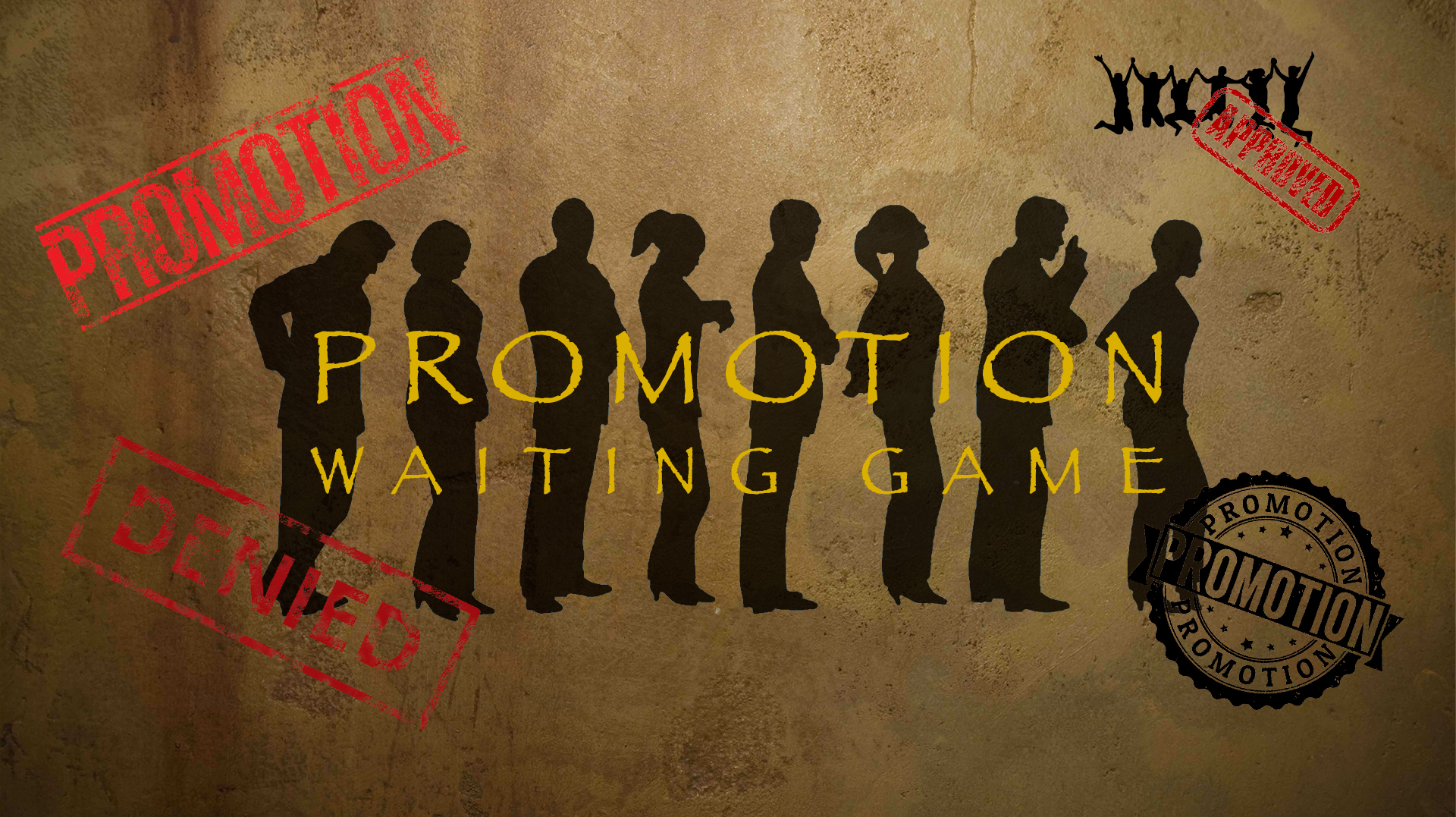Recent surveys found that nearly 90 percent of high-level executives believe that developing executive presence helps people get ahead. As a result, many corporate learning and development organizations focus on developing executive presence for their up-and-coming leaders. Throughout my career I have found that individuals that exhibit executive presence have a significantly higher promotion rate, while those that don’t stay behind.
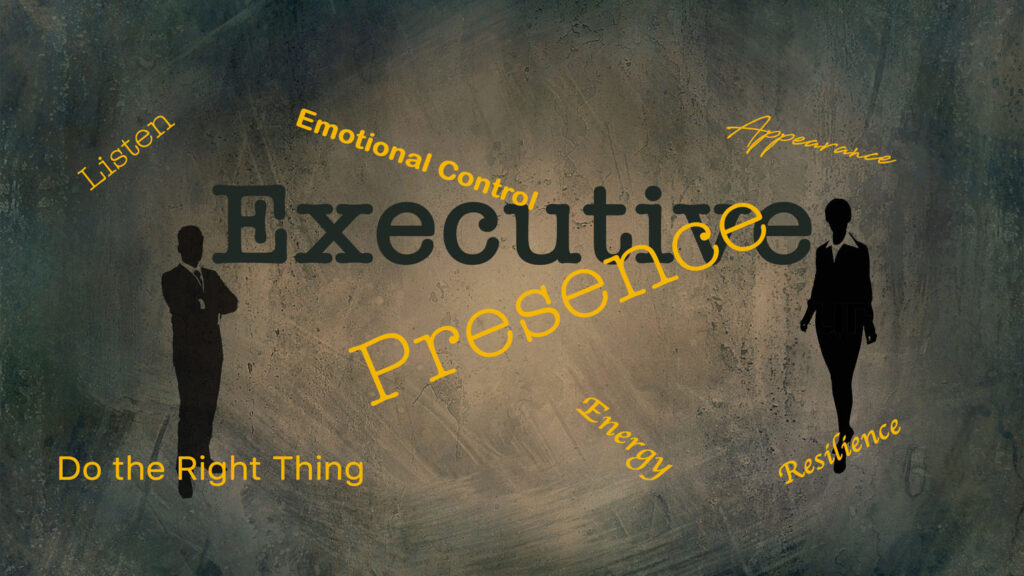
Developing executive presence transforms managers into respected leaders. The following is a simple guide I use when coaching individuals who wish to cultivate executive presence.
Listen Better

Listening is a critical component of executive presence. Communication is a two-way street. Few people have issues with the outbound part of the exchange while some struggle with the inbound flow. Some people want to dominate the room and showcase what they know before anyone else can steal their idea or thought. When they can’t find the opportunity to insert their idea, they most often say “that’s what I was going to say.” Listening to others’ opinions before speaking our mind can bring incredible benefits. Speaking last allows us to process what is said and provides us the ability to craft insightful statements. Have you ever wondered why people with executive presence say the most insightful things? Well, now you know.
Emotional Control

Poise is valued by the people we work with. Calmness creates a sense of trust and comfort among the team. Controlling our emotions allows the rational part of the brain to think through critical situations and process the information logically. Emotional control also helps us with the decision-making process. Rational decisions most often lead to better outcomes. For further development in this area, please consider reading Emotional Intelligence 2.0. You can find a short write-up in my Book Recommendations section.
Appearance & Body Language

Even with the trend towards more casual workplaces, the old adage “Dress the Part” is still true today. If you want people to think you are an executive, then you should dress and act like an executive. You don’t have to show up in business formal attire every day. Find something reasonable and professional to wear. Body language is also a big component of your appearance. Read my article on Personal Product Management to see why this is important. Dressing appropriately and having an open and welcoming body language goes a long way towards exhibiting executive presence.
Do the Right Thing

Successful executives represent the company first, then their function and then themselves. During meetings, try to focus on the topic and identify the impact on the company’s financials, the customer and the employees. In addition, evaluate how the competition will react. Doing so will also help people see that you are more strategic and that you possess a visionary mind.
Energy & Charisma

People with executive presence are upbeat, energetic, positive and charismatic. They are engaging, ask provocative questions, and listen attentively for long periods of time. Their positive energy is contagious, and they are fun to be around. They often strike relationships at all levels, and they are a positive influence across the organization.
Resilience

When presented with difficult problems, people with executive presence often up their game. They are very resilient and don’t let the situation dominate their day and impact their mood. These individuals have a balanced approach, and they a have a way to keep going even during the darkest of times.
Executive presence is beneficial for people seeking higher levels of leadership. Poise and presence are mastered through self-awareness, focus and practice. Listening better, controlling your emotions, minding your appearance, doing the right thing, having positive energy and being resilient will show those around you that you can lead through all kinds of challenges.
I hope this article was helpful. Drop me a note in the comment section below or through the Contact Me page if you have any questions.
Thanks,
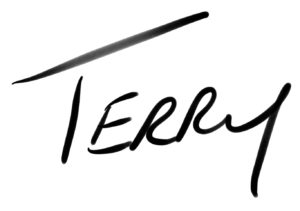
© 2019 T. Kahler Coaching, LLC, All Rights Reserved.
NOTE: * Survey commissioned by Sally Williamson & Associates.
